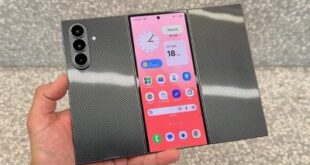The world of mobile devices is majorly divided into two broad categories, iOS (iPhone) by Apple and Android by Google. Both have their advantages and disadvantages, something that presents the question as to which one is better and which one you should be buying. Well, this would be difficult to answer since it would depend a lot on your individual needs and preferences. Let’s take a closer look at the key differences between Apple and Android and try to ascertain which one is better.
Snob value: iPhones are generally considered superior to Android devices. This is a general perception among users and it may or may not be backed by any scientific evidence. iPhone is a top brand in the world and it has an expert marketing team that has been consistently shaping positive perceptions about the brand. iPhones come at a higher price than most Android devices, which is another reason why they are considered superior. Here again, popular perceptions are at play and not necessary the input costs of manufacturing an iPhone. Research studies have indicated that manufacturing cost of iPhone is just around 30 -40 percent of the printed price. This shows that Apple is making a great deal of money on every iPhone and it has a lot to do with its snob value.
Choice of device: If you go for Android, you can choose from various devices such as those manufactured by Samsung, Motorola, Sony, LG, Panasonic, HTC, etc. There are dozens of mobile devices brands and each of these have dozens of devices that you can choose from. So, if you are looking for variety, Android would be your first choice. In comparison, Apple devices are fairly limited, especially when compared to the variety available for Android devices. If you select Android, you will have the freedom to choose the shape, size, color and other features& specs, as per your needs.
Compatibility issues: Excluding stock Android phones, most other mobile device manufacturers use their own tweaked versions of Android. This often leads to bugs, as it creates compatibility issues with different types of hardware components. It’s true that devices are extensively tested and updates are provided to fix bugs, but not all issues get resolved. In comparison, Apple controlsboth the handsets and the iOS, which limits the risk of bugs due to hardware-software compatibility issues. Moreover, bugs can be fixed faster in case of iPhones since there will only be a specific set of hardware components to deal with.
System Updates: In case of Android, different device manufacturers have different configuration for the hardware and software. This creates ambiguity, in terms of which devices will be getting system updates. Even if you have two devices with the same Android OS version, there is no surety that both of them will be getting system updates. If the brand and hardware/software configuration is different, getting system updates cannot be guaranteed. In comparison, Apple devices are updated without any issues since they share the same hardware and software configuration.This makes iPhones safer in terms of the security perspective.
Apps and app development: Android apps available on Google Play are more in numbers, as compared to apps available on Apple App Store. However, if you consider security aspects, iPhone scores better since it follows a strict policy for apps and the permissions they have. Google Play has been in the news for security concerns and it is currently working to improve its offerings. Another aspect to the apps is that app developers have a tough time when designing apps for Android devices. They have to work hard to ensure compatibility with hundreds of Android devices, which is a challenging task. This naturally affects the quality of apps on Android devices. In comparison, app development for iPhones is a lot easier since there are relatively fewer versions of iPhones.
Gaming: Apple devices are considered superior when it comes to serious gaming. Apple devices have compatible hardware and software configuration, which allows them to integrate high-end gaming technologies. Since Apple has better control over hardware and software configuration, it is easier for app developers to develop advanced gaming apps for the iOS platform. In comparison, gaming on Android devices can be affected by bugs and issues since it’s impossible to ensure compatibility across hundreds of Android devices.A recent report indicated that some app developers have completely stopped creating gaming apps for the Android platform.
Battery Life: In case of iPhones, the battery is part of the standard package. As such, you do not have much choice in terms of choosing the type of battery you want. For example, you can’t say that you want iPhone X with a higher battery capacity. You get what Apple has to offer. In comparison, if you go for Android, you can choose the type of battery you want. Different Android devices have different battery configuration and you can choose as per your need.
Customization: Android offers a higher level of customization, as compared to iPhones. If you choose stock Android, you can easily remove pre-installed apps and keep only the ones you need. In comparison, changingdefault apps on iPhones is not possible. This means that you will get stuck with certain unwanted apps that will continue to clog your device’s memory and drain its battery.
Resale value:Mobile devices are frequently bought and sold, as people upgrade to new models that are released. Changing mobile devices every year or even earlier is quite commonplace for many users. Recent studies indicate that iPhones have a higher resale value, as compared to Android devices. So, if you want to get a good price for your old mobile device, your first choice would be an Apple device.
As is evident from above differences between Apple Vs. Android, your final choice will depend on your specific needs and preferences. The budget you have in mind will also determine your choice, since Android devices are much cheaper than Apple devices.If you are buying your first mobile device, the safer option would be to go for an Android device. Experienced users can experiment to see which one works out better for them. For example, existing Android users can try iPhone and vice-versa. You may have heard opinions and read reviews, but things will become clearer only when you get first-hand experience in using both Apple and Android.
 Newspatrolling.com News cum Content Syndication Portal Online
Newspatrolling.com News cum Content Syndication Portal Online




